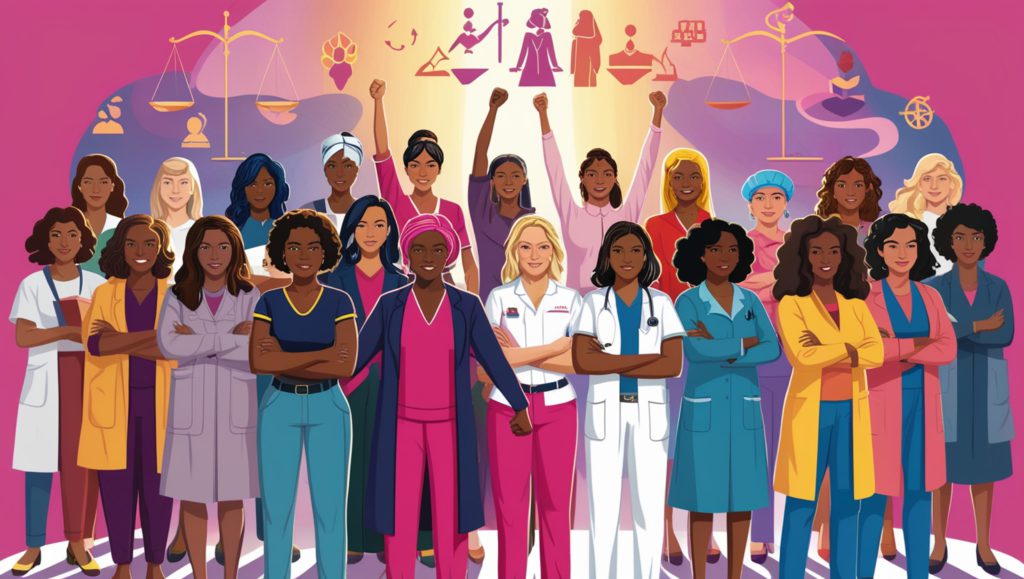Progress and Challenges on Women Empowerment
Empowering Women Progress and Challenges have come a long way, but the journey toward true empowerment and equality is ongoing. Around the world, women are breaking barriers, achieving new milestones, and challenging norms in spaces that were once closed to them. Yet, despite these victories, women continue to face challenges that must be addressed to build a more just and inclusive society.
This year, the conversation on women’s rights remains as essential as ever, highlighting progress, ongoing struggles, and the need for sustained advocacy.
Key Milestones and Progress in Women’s Empowerment
- Growing Representation in Leadership and Politics
Across the globe, more women are stepping into leadership roles in government, business, and social movements. Countries such as New Zealand, Iceland, and Finland continue to set examples with strong female representation in high offices. This trend is not just empowering but essential; studies have shown that societies benefit when women are equally represented in decision-making positions. In these days, we’ve seen record numbers of women elected to parliaments, serving as CEOs, and leading global organizations. - Advancements in Education and Professional Opportunities
Access to education and employment for women has increased significantly, especially in STEM fields, where women were previously underrepresented. Education has proven to be a powerful tool for empowerment, providing women with the skills and confidence to advocate for their rights and excel professionally. Organizations around the world continue to promote scholarships, training, and mentorship opportunities tailored to support women’s growth in education and career. - Digital Empowerment and Online Communities
The digital landscape has provided a unique platform for women to connect, advocate, and mobilize for social change. Through social media campaigns, online communities, and digital activism, women are amplifying their voices and driving important conversations on issues like pay equity, reproductive rights, and violence against women. This digital empowerment is instrumental in raising awareness and fostering support across borders.
Persistent Challenges Women Faces
- Workplace Inequality and the Gender Pay Gap
Despite strides in workforce equality, women continue to face significant barriers, particularly in terms of pay and promotions. The gender pay gap persists across various sectors, and women are often underrepresented in high-paying, high-ranking positions. Addressing this gap requires changes not just in policy but also in workplace culture, where biases often hold back women’s advancement. - Gender-Based Violence and Safety
Gender-based violence remains a critical issue, affecting millions of women globally. Whether it’s domestic violence, harassment, or cyberbullying, the need for stronger protections and support systems is crucial. Many organizations are pushing for legal reforms and policies to protect women from violence, but there is still a need for widespread education and resources to address this pervasive issue effectively. - Reproductive Rights and Health Access
Access to reproductive health services is essential for women’s empowerment and bodily autonomy. In these days, however, many women worldwide face restrictions on reproductive rights, from access to contraception to safe abortion services. These barriers not only impact women’s health but also limit their ability to make decisions about their own bodies, affecting their education, careers, and financial independence.
Moving Forward: Actions for Present Days and Beyond
Achieving equality and empowerment for women requires continued effort and global collaboration. Here are some key actions we can support to advance women’s rights:
- Advocating for Equal Pay and Fair Workplaces
Supporting policies and organizations that fight for equal pay and transparent hiring practices can help close the gender pay gap. Awareness campaigns and workplace training can also address gender bias and create fairer, more inclusive environments. - Promoting Access to Education and Resources
Education is one of the most effective pathways to empowerment. Programs that provide scholarships, mentoring, and resources to girls and women, especially in underprivileged areas, help bridge the gender gap in education and career opportunities. - Supporting Legislation Against Gender-Based Violence
Campaigns that advocate for comprehensive legal protections and increased funding for survivor support programs are essential. We can also support local and international organizations working to end gender-based violence through awareness, education, and policy change. - Championing Reproductive Rights
Every woman has the right to make decisions about her own body. By supporting organizations and movements that protect and expand reproductive rights, we contribute to women’s health, autonomy, and overall well-being.
Conclusion
The journey toward gender equality in Todays World is marked by both triumphs and trials. As we celebrate women’s achievements and take pride in the progress made, we must also acknowledge the work that remains. Empowering women isn’t just about breaking barriers but ensuring that women have equal opportunities, safety, and support to succeed in every aspect of their lives.
As we move forward, let’s continue to advocate for the policies, cultures, and communities that truly support women’s rights and amplify their voices in the global conversation for equality.

